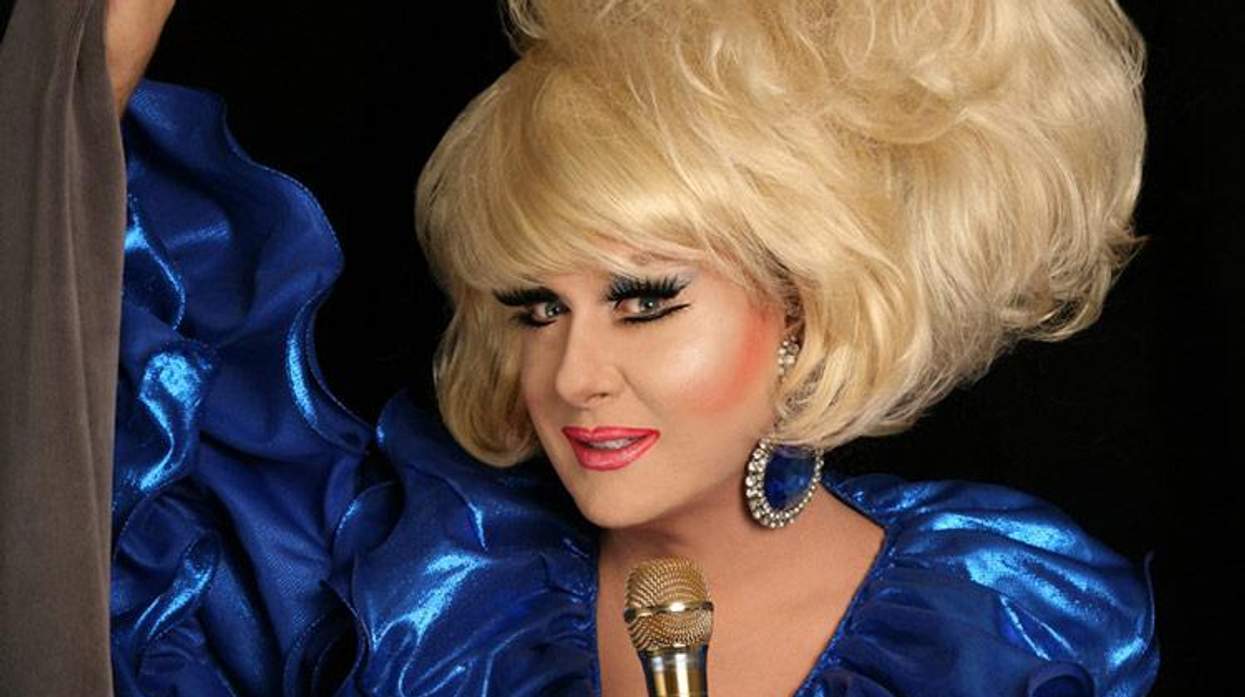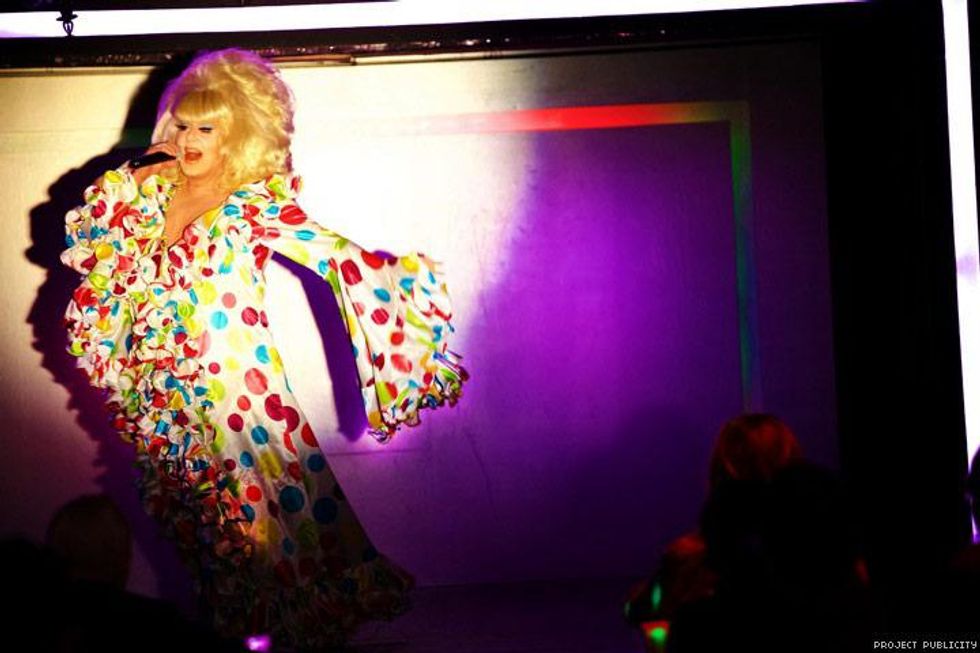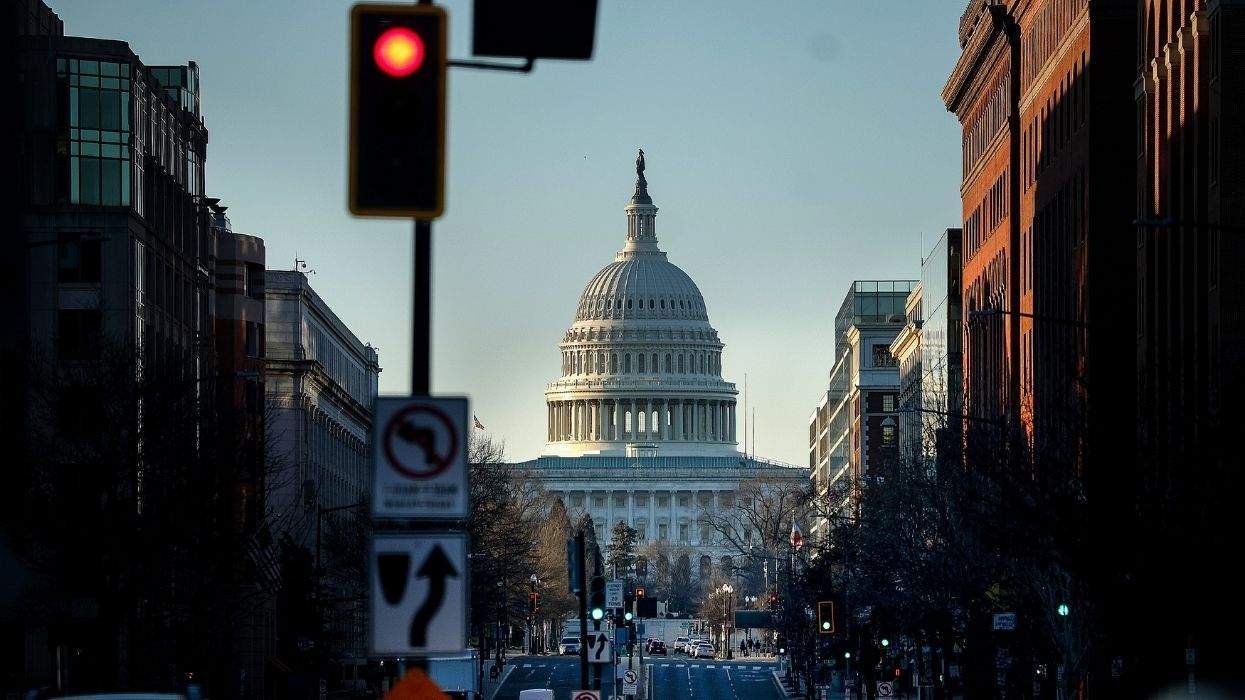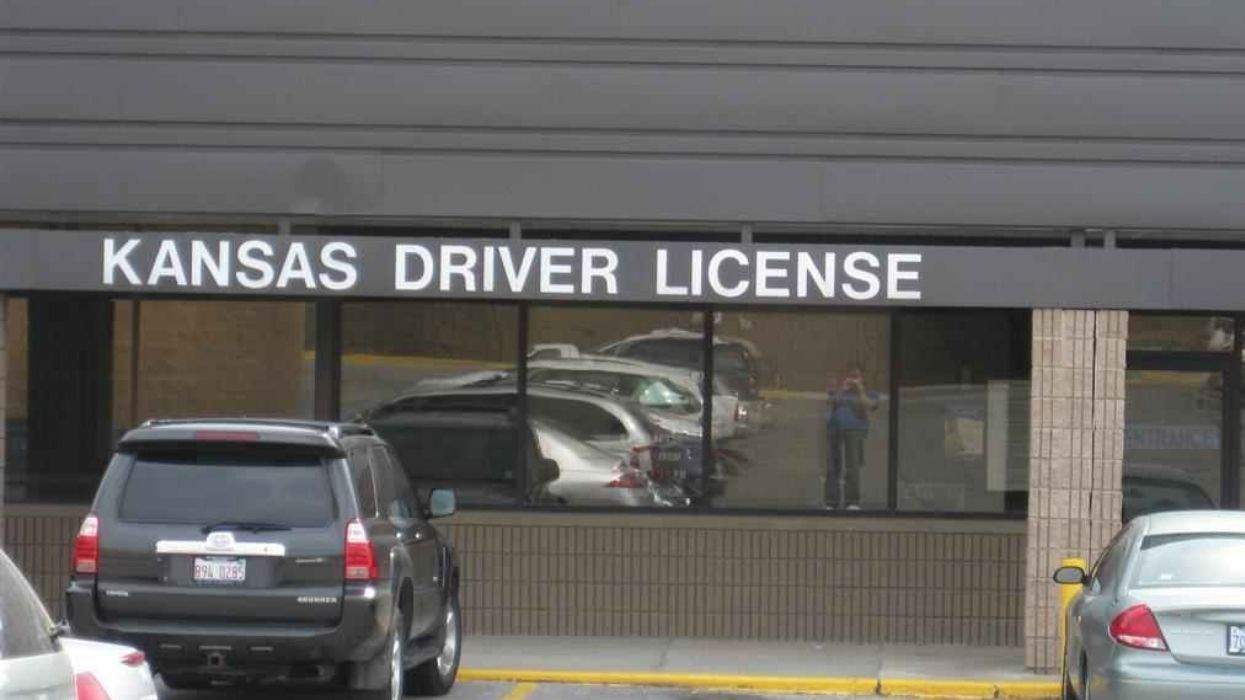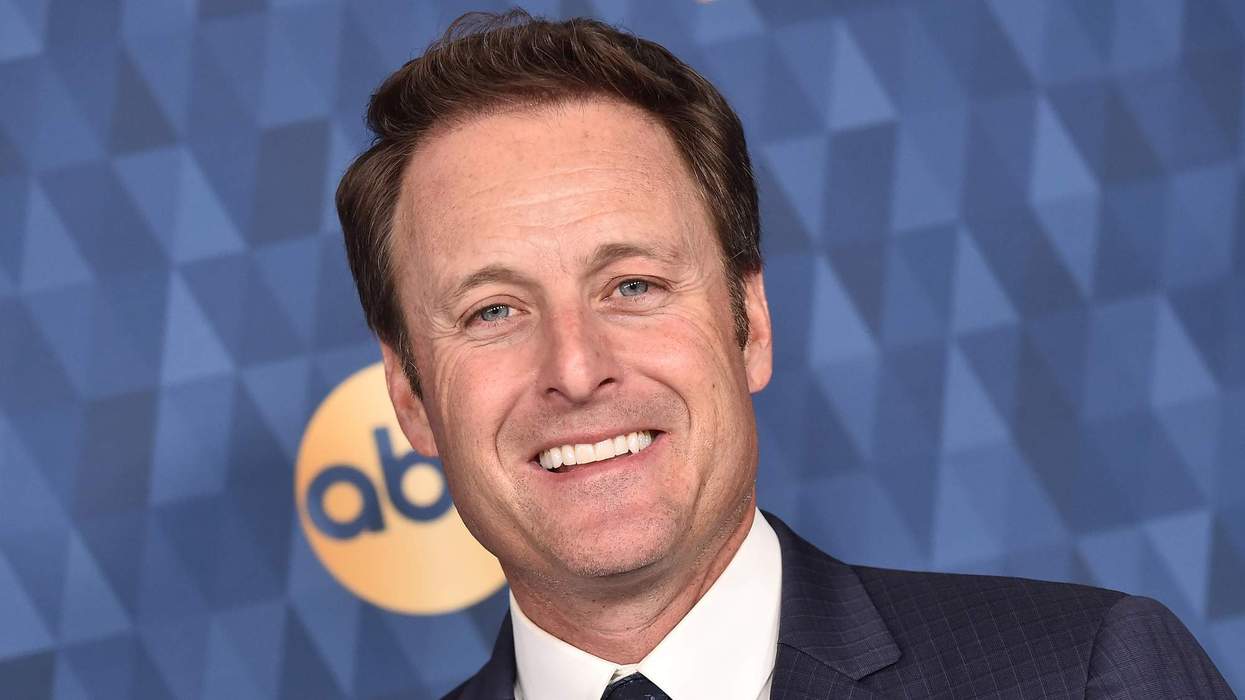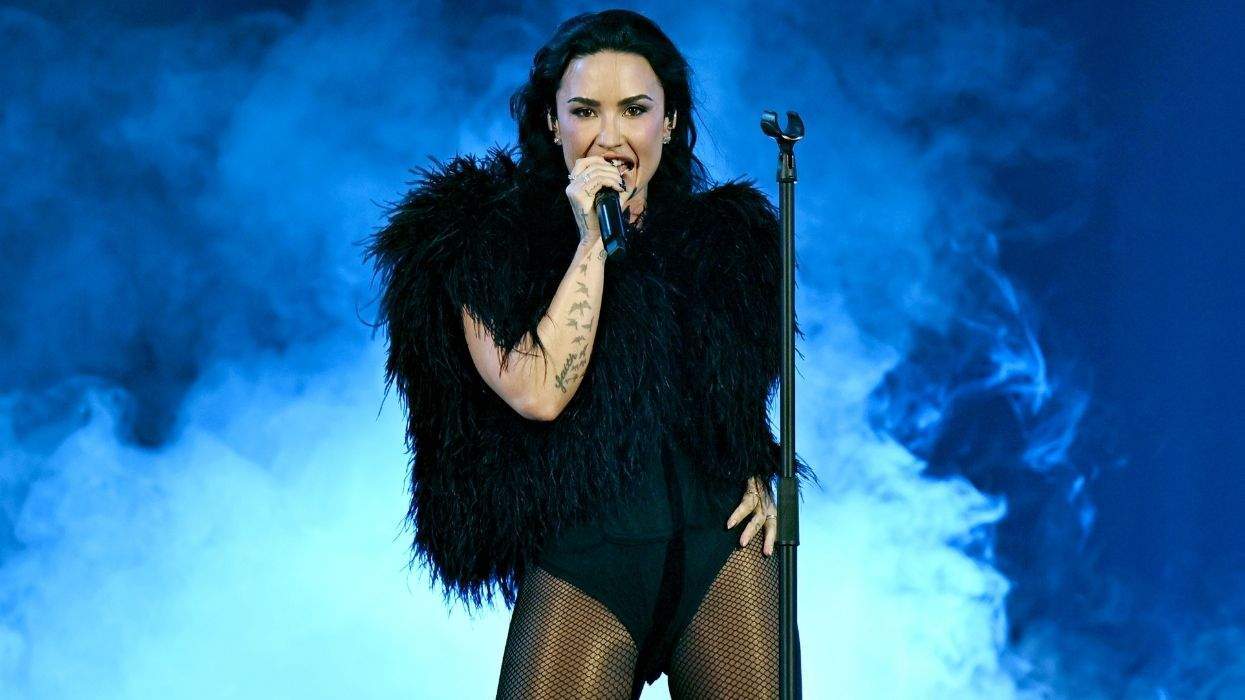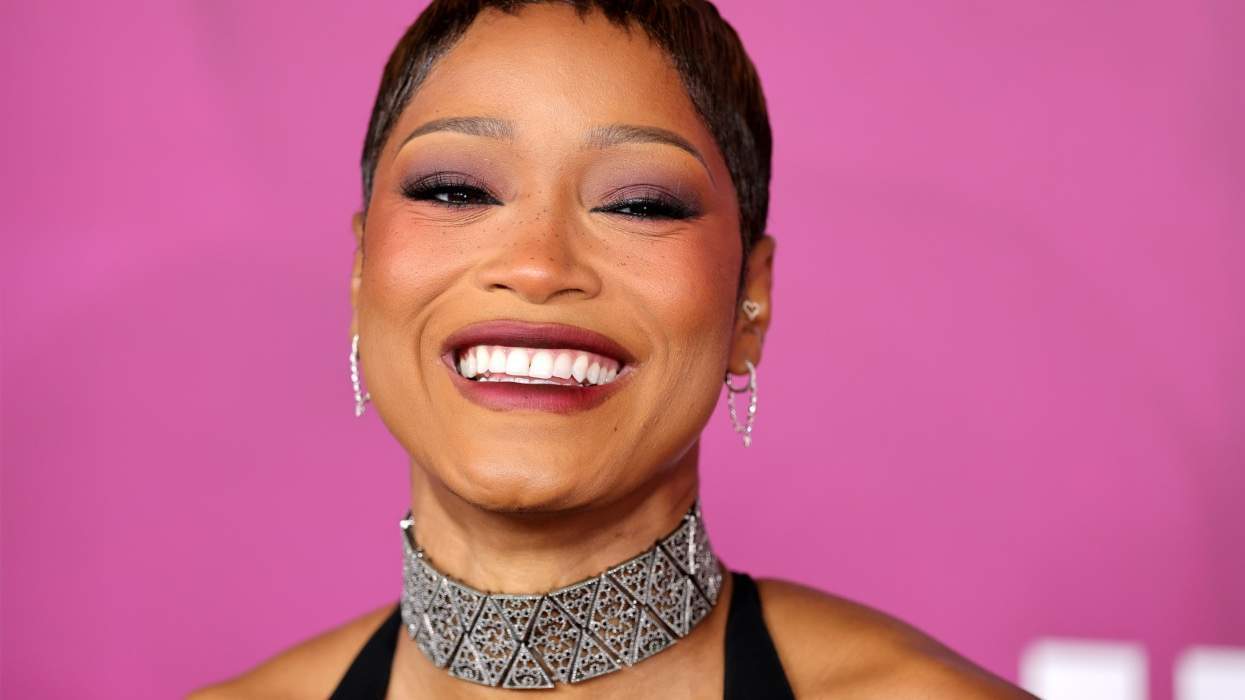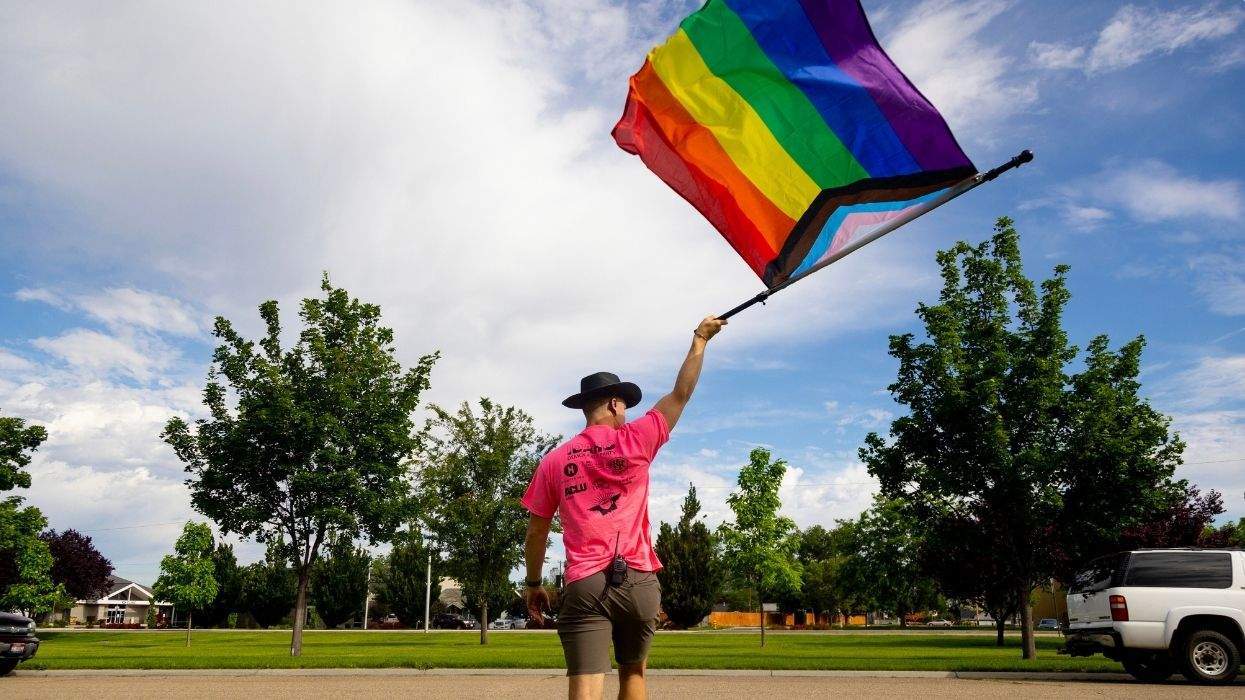Iconic comedian Lady Bunny knows all too well that the searing discrimination and violence towards LGBT people dampens our ability to laugh in dark times.
She watched as a dark cloud descended on her native North Carolina, which just enacted a sweeping anti-LGBT law that explicitly targets trans people and outlaws any local efforts to protect LGBT citizens. Even in her adopted city of New York -- so often considered a progressive, tolerant haven -- Bunny is keenly aware of the vicious attacks against transgender individuals.
But irreverent laughter has always brought marginalized people together in the toughest of times, Bunny insists. She tells The Advocate that she's looking to help her audiences find crucial moments of levity in a world of perilious LGBT politics.
That's exactly what Bunny hopes to do with her upcoming show, Trans-Jester, which runs April 13-30 at New York City's Stonewall Inn.
By opening her show at the Stonewall, the titular site of LGBT liberation -- a historical landmark made famous by the days-long protest that ensued after police raided the bar on June 28, 1969 -- Lady Bunny hopes to show that raucous comedy still has a place within the current political landscape.
While marriage equality is now the law of the land, the backlash to the Supreme Court's affirmation of that constitutional right has prompted a slew of reactionary, discriminatory political moves. But that reactionary tone isn't limited to our adversaries, she notes.
"There is an obsession over words and behaviors that refer to gay people, trans people, overweight people, and more," she says. This "political correctness," in Bunny's opinion, can sometimes "pull us apart at the exact moment when we should be together."
"It's like we are being forced to walk on eggshells," Bunny laments. "And sometimes I really think we are missing the point. Within our own gay and trans communities, if you treat people with respect and you occasionally get a pronoun wrong because you honestly don't know, I don't think that should be the end of the world."
Bunny moved to New York City 32 years ago and quickly became a standout figure in the city's underground entertainment pantheon. She's appeared in such mainstream movies as To Wong Foo, Thanks for Everything! Julie Newmar. She specializes in a variety of comedic female illusions full of song parodies like "Shame, Shame, Shame!" that turn familiar pop songs into biting social commentary.
A disc jockey, fundraiser, and spokeswoman, the 53-year-old icon's comedic, satirical storytelling may be caustic, but it's always executed with heart. Her down-home, Southern hospitality coupled with her ability for self-deprecation makes it seem as if she is laughing with us, not at us.
Bunny has always walked the line between the world of drag -- broadly considered the art of female and male illusion -- and that of transgender people, many of whom strive to live authentically in their true gender as they move about their everyday life.
"It hurts my heart to see a division between drag and trans," Bunny says. While acknowledging that transgender identity is not synonymous with drag performance, she nonetheless celebrates the rich cross-fertilizations between the work of drag queens and kings and the experiences of trans people.
Bunny is an entertainer who, by her own admission, has "never felt male." She says that has identified variously under the trans umbrella as "genderqueer" and "nonbinary trans." She notes that she has undergone a few clinical procedures customary among transitioning trans-feminine people like "hundreds of hours of electrolysis."
Even when she's not wearing the foot-high, honey-blond tresses, sumptuous lashes, and brightly colored print frocks that epitomize her onstage drag persona, she says that she is regularly called "ma'am" by members of the public. Her long-standing connection to both the drag and the trans worlds gives her a special insight into the linkages and differences between the two.
From 1985 to 2005, she was the driving force behind Wigstock, an annual outdoor East Village Labor Day festival that frequently took place on the Chelsea Piers. The festival was downsized after the terrorist attacks on September 11, 2001, and joined "the HOWL! Festival at the original Tompkins Square Park location in 2003," Bunny told Fusion last year. The festival gathered a who's who of female and male theatrical illusionists to share skills and perform.
With costumed extravaganzas and raunchy nude acts that rivaled the antics of San Francisco's legendary late-1960s Cockettes revue, Wigstock represented freedom from the buttoned-up normalcy of 9-to-5 working life. The festival was documented in an eponymous 1995 movie, and it lived on as a cruise, Bunny told Fusion.
"I've never had a connection with respectability," Bunny says of the current cultural deference to so-called political correctness. "I come from a world of nightclubs and performance, from a different generation, when comedians like Joan Rivers were celebrated by our community and we were able to laugh at political correctness. If the only world you knew before you came out was the Internet, then you could not see what was going on in the streets and at the nightclubs."
Like the shows of the late, much-beloved-by-gays comedian Rivers, Trans-Jester includes brutal satire. Bunny dives in to hilarious and unsettling discussions of interracial sex, and critiques of the rise of the conservative transgender icon Caitlyn Jenner. Audiences should expect to hear a scandalous version of the classic Sound of Music song "My Favorite Things" about Jenner.
In the show, Bunny also lampoons her own attempts to find sex and love as a "mature showgirl," as a prepared statement sent to The Advocate cheekily says.
But most of all, Bunny hopes that the show shares the truth that "the best humor comes from the worst tragedy":
"I wish we could band together even more around actual physical threats, instead of getting riled up so much about words and political correctness -- because none of us are really safe except a few tiny pockets. Because sticks and stones and the denial of our rights really do hurt us!"
Trans-Jester runs in a limited 12-show engagement from Wednesday, April 13, at 7:30 p.m., through Saturday April 30. Tickets can be purchased online in advance here or at the door.
